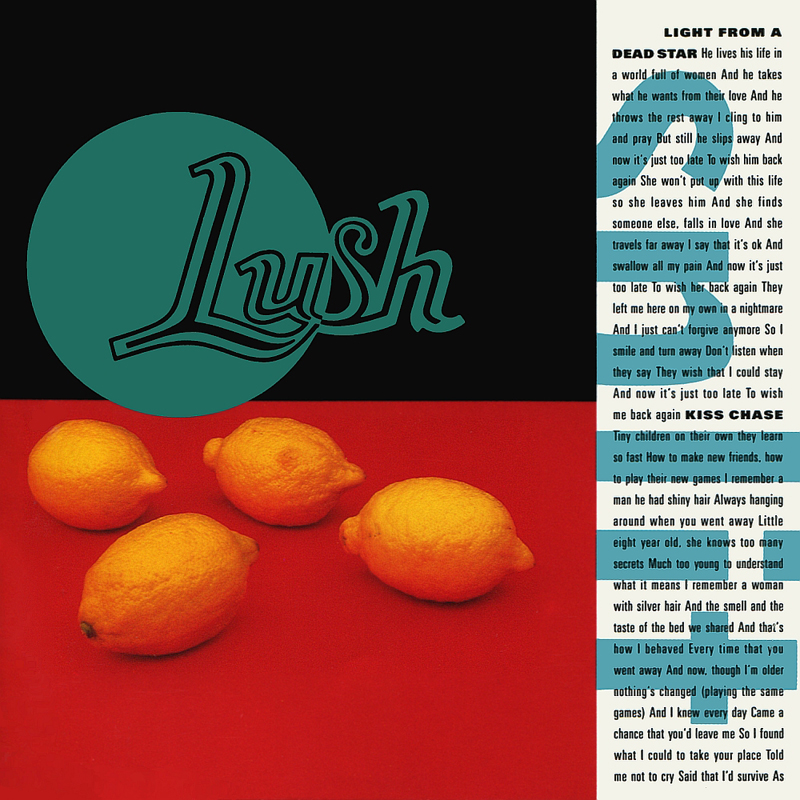In a sense, the beginning of Lush was as inevitable as its ending was not. Formed from a friendship started at age fourteen by Londoners Miki Berenyi and Emma Anderson, the pair ran a fanzine, and attended a catholic variety of gigs nightly at the likes of Fulham Greyhound and Hammersmith Clarendon. And they were learning the ropes in other people's bands - Berenyi in The Bugs, Anderson in The Rover Girls - working to make their own band a reality. Eventually, along with the absurdly good-humoured Lancastrian punk drummer Chris Acland, and bassist Steve Rippon, they went out on their own.
Read more
For music, the late Eighties were a vibrant and volatile time. There was acid house, US art-core, death metal, fledgling industrial and European sampledelia, a rising Madchester and the shimmering punk pop of The Primitives, plus the delicate oceanics of The Sundays. Having much in common with these last two and, attitude-wise, at least three of the others, Lush were quickly hot property. One review in Melody Maker brought 12 major labels to see them play at London's ULU. None called again, but 4AD's Ivo Watts-Russell was interested, soon putting the band in Blackwing Studios with John Fryer.
By the time debut LP Spooky was released in 1992, Rippon had amicably departed, to be replaced by Phil King (ex of Felt and Biff Bang Pow!). The LP went Top 10 in the UK and was an indie chart-topper. It sold upwards of 120,000 in the US too, in part due to one of the most glorious chapters in the Lush story: Lollapalooza II. Regularly swapping band members with Pearl Jam and Ministry, while proving beyond all argument their hellraising credentials, Lollapalooza was a hedonistic and enlightening experience for the band. Such was that case that on their return to the UK, Lush immediately repaired to Rockfield Studios in Wales.
The recording of Split, their second LP proper (a collection of their early EPs, entitled Gala, had been released in the US only) was exceptionally testing. Expectations of an American breakthrough were high and the pressure was on. However, despite being the band’s best work to date, the album wasn’t the commercial success it promised and, as is often the case, failure proved liberating. While the pressure came off, new enthusiasm was injected by the arrival of new manager Peter Felstead. The band threw themselves into recording what would be their final LP, Lovelife. T
he combination of personal freedom with a growing experience and expertise took Lush onto a new creative plane. As such, the pressure was immediately back on to break America. Now the touring became back-breaking and repetitive. Frustration and bad feeling within the band grew inexorably. Acland, ordered to rest by his doctor, returned to his parents' home in the Lake District. Anderson, dissatisfied with her current position, called a meeting and announced her departure. Then worse news was to follow. Up in the Lakes - horribly, terribly - Acland had hanged himself. "For me," says Berenyi "That was the end. There was no way on earth I could have gone on with Lush without him, because I always firmly believed that without his benign influence Emma and I would have torn each other apart years ago.”
It should have come as no surprise that Acland's death finished Lush. Privately and professionally, in their joyful celebrations and their painful (and far more frequent) self-examinations, they were in the business of living life, really living it. Their talent and their exuberance though had already made a difference. Particularly in the States, where their music was deeply respected and their lyrics - often moving, rigorous and earthy appraisals of themselves and their relationships, their nature and nurturing - were a motivating force for female songwriters. As well as being accidental icons (the best kind), Lush also made exceptional music: classic pop, fiery punk, soaring ambient and a modern, lilting folk. It can be harrowing - fun or fraught, these are recognisably real life experiences. But it's all worthwhile, all of it. And few bands could truthfully say that.







































